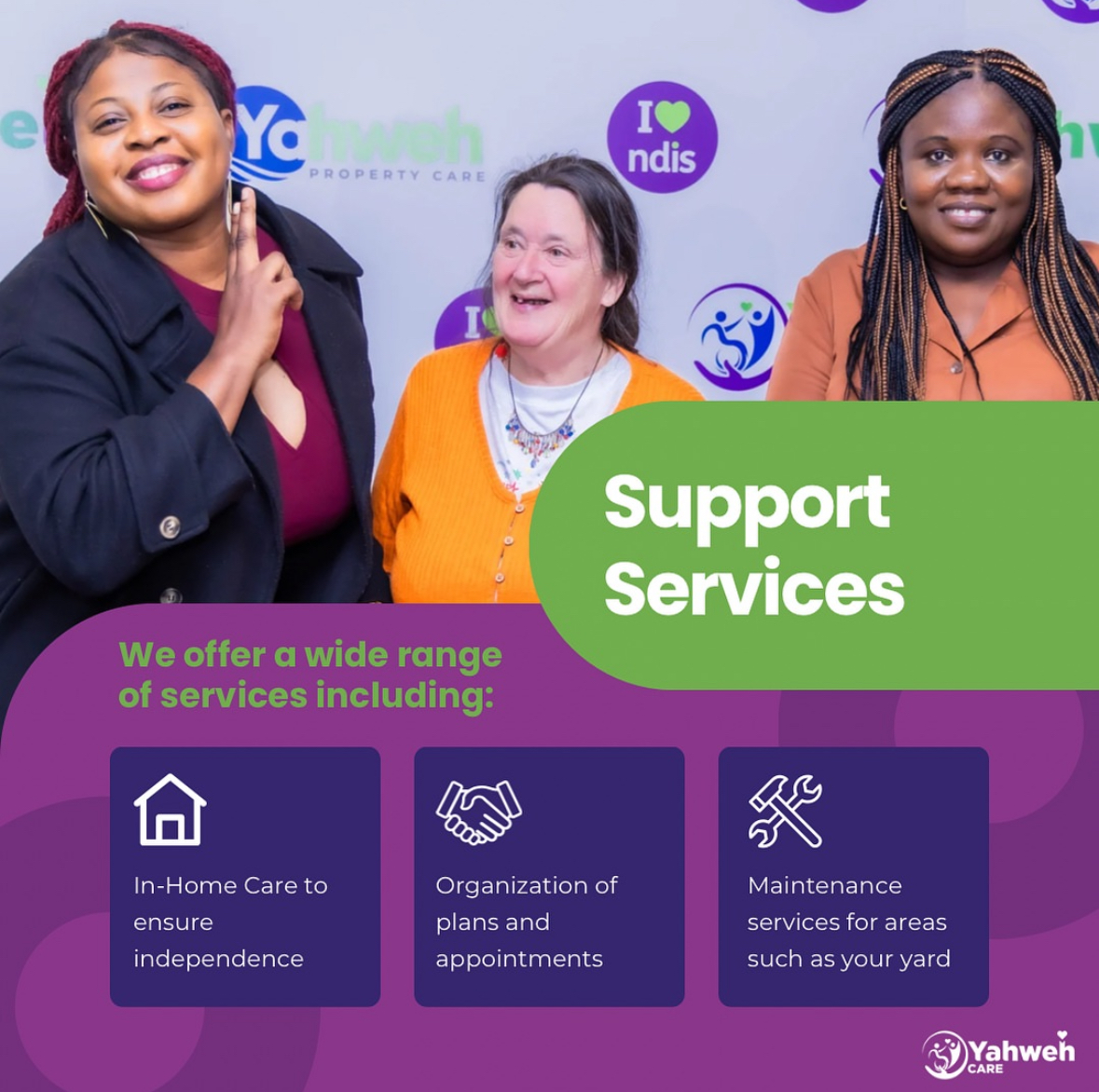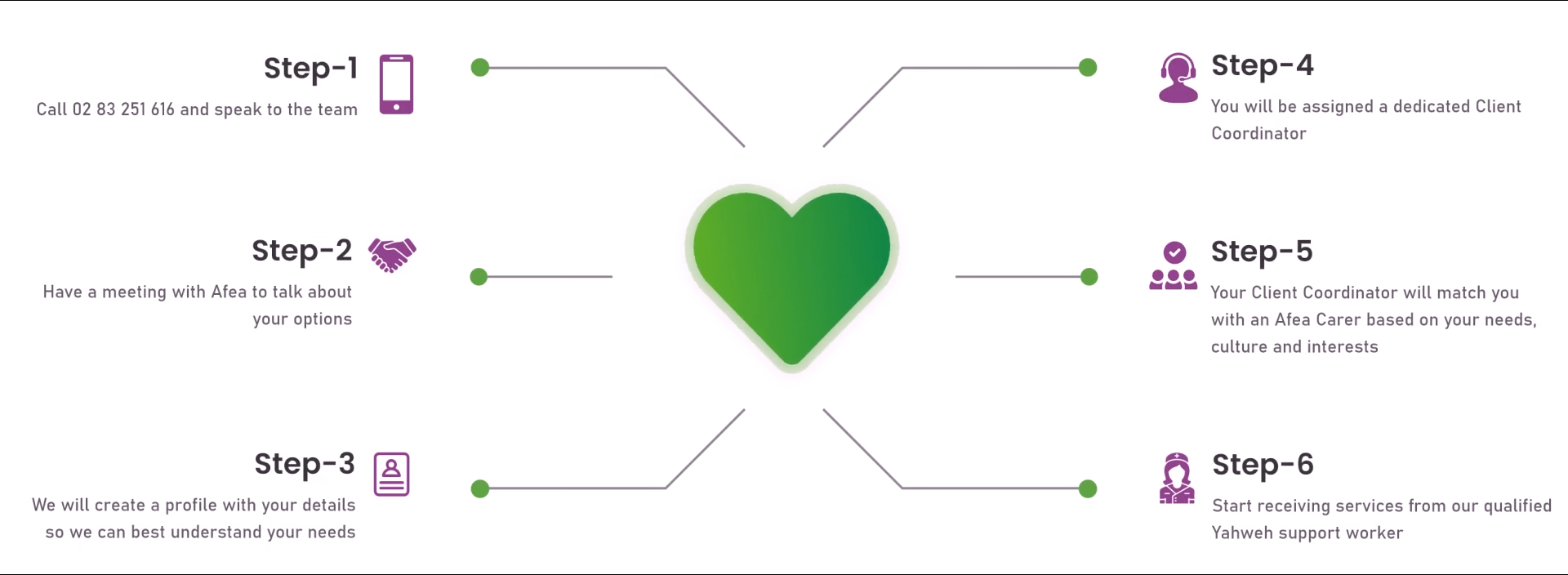Month: December 2023
Why Is It Important to Outsource Domestic Assistance?
This world is getting increasingly busy, and many people have realized this and, as such, work overseas for long periods to escape the day-to-day routine that can seem dull. But to live a balanced lifestyle, these people have begun integrating a Domestic helper or caretaker into their lives. In this blog post, you will learn about the many benefits of outsourcing domestic help.
What is Domestic Assistance?
Domestic assistance is an important part of keeping things running smoothly for many individuals and families. Domestic assistance can include grocery shopping, cooking, laundry, and cleaning. It can even extend to more personal tasks like providing transportation or errand-running services. For those unable to perform these tasks on their own or who don’t have the time, outsourcing domestic assistance can be a lifesaver. Several companies provide these services, which can be customized to meet your specific needs. Outsourcing domestic assistance can free up a significant amount of time in your day-to-day life, which can be used for work, leisure, or anything else you see fit. It can also provide peace of mind knowing that there’s someone else taking care of the day-to-day details, so you don’t have to worry about them.
The Benefits of Hiring a Domestic assistance NSW
There are many benefits to hiring a domestic assistant, including the following: 1. Fewer distractions at home: When someone else takes care of the household tasks, you can focus on your work or other important things without being interrupted by distractions like laundry or cooking. 2. More free time: Having a domestic assistant means you’ll have more time for things you enjoy outside of work or even just for relaxing at home. 3. Help with entertaining guests: If you entertain guests often, a domestic assistant can help make sure everything runs smoothly and keep your home tidy before and after visitors. 4. Peace of mind: Knowing that household tasks are taken care of can give you peace of mind and reduce stress levels.
Things to Consider When Choosing One Yourself
When it comes to choosing a domestic assistance provider, there are a few things you’ll want to keep in mind. So here are some top things to consider when making your decision: -Are you looking for someone to help with basic household tasks like cooking and cleaning, or do you need more specialized assistance? -What is your budget for outsourcing domestic assistance? -How much time do you have available to manage a domestic assistant? -Do you feel comfortable trusting someone else with your home and personal belongings? Weighing these factors will help you narrow down your options and choose the best domestic assistance provider for your needs.
Tips to Find the Right One
If you’re considering outsourcing your domestic assistance, finding the right company or individual to entrust your home and family is important. Here are a few tips to help you find the right domestic assistance: 1. Make sure the company or individual is reputable and has good references. Try to ask around for recommendations or check for the latest online reviews. 2. Interview potential candidates to get a sense of their qualifications, experience, and personality. 3. Ensure they are insured and bonded in case of accidents or damages. 4. Discuss your expectations and needs in detail to ensure they are on the same page as you. 5. Sign a contract that outlines the terms of your agreement, including payment details, hours, duties, etc.
Conclusion
There are many reasons why it’s important to outsource domestic assistance NSW, whether you’re a busy professional or a stay-at-home parent. Not only does it free up your time to focus on other things, but it also gives you the peace of mind of knowing that someone else is taking care of the housework for you. In today’s fast-paced world, outsourcing domestic assistance can be a real lifesaver.
An Informative Blog On The Benefits Of High-Intensity Care
The term ‘high-intensity care’ is relatively new in the medical sphere and refers to intense therapies and procedures that help patients recover. Many people require complex/high-intensity care daily due to illnesses or injuries, but not all hospitals have the appropriate facilities. High-Intensity Care supports those struggling with difficult illnesses like cancer and delivers care in a family home-like environment. This blog will focus on the benefits these services offer to the patient’s recovery process.
What is the goal of High-Intensity Care?
The goal of complex/high-intensity care is to improve the quality of life for patients with chronic conditions. It is a comprehensive, interdisciplinary approach to care that focuses on the whole person, not just their illness. High-intensity care includes all aspects of the patient’s life, including their social and emotional well-being and physical health. The goal is to help patients manage their chronic conditions so they can live full, active lives. There is no one-size-fits-all approach to high-intensity care. Instead, each patient’s care plan is customized to their individual needs. The care team works with the patient to identify their goals and develop a plan to help them achieve them. The team may include specialists in various fields, such as medicine, nursing, dietetics, physical therapy, and social work.
What are some high-intensity treatments?
complex/high-intensity care is often used to care for patients with more serious health conditions. These treatments can be very powerful and may have significant side effects. Patients who receive high-intensity treatments often need to be monitored closely by their healthcare team. Some examples of high-intensity treatments include: -Chemotherapy -Radiation therapy -Stem cell transplants -Immunotherapy
Are there any side effects to high-intensity care?
Yes, high-intensity care has potential side effects but are typically rare and mild. The most common side effect is feeling flushed or warm. Other potential side effects include low blood pressure, headache, nausea, and irregular heartbeat. Most of these side effects are temporary and will go away independently. However, if you experience severe or persistent side effects, please contact your doctor or healthcare provider immediately.
Benefits of high-intensity care
complex/high-intensity care has many benefits, especially when treating patients with chronic conditions. Studies have shown that high-intensity care can help improve patient outcomes, reduce hospital readmissions, and lower healthcare costs. Patients who receive high-intensity care often have better clinical outcomes than those who receive standard care. For example, one study found that heart failure patients who received high-intensity care were less likely to be readmitted to the hospital within 30 days than those who received standard care. Another study found that patients with chronic obstructive pulmonary disease (COPD) who received high-intensity care had a significantly lower mortality rate than those who received standard care. High-intensity care can also help reduce healthcare costs. For example, a study of heart failure patients found that those who received high-intensity care had fewer emergency department visits than those who received standard care. This can lead to significant savings for both patients and the healthcare system.
Conclusion
complex/high-intensity care is beneficial in various ways, and we hope this blog has helped you understand how it can help improve your life. If you or someone you know is struggling with a chronic illness, please don’t hesitate to contact the right intensity care unit for help. With the right support, anyone can live a healthier and happier life.
How High Intensity Professional Care Is A Part Of Palliative Care
Hospitals are overcrowded and overstretched, with a ever-rising number of beds lying empty. Planning care outside the hospital is essential because it means that hospitals have the capacity to deal with those who need acute care. This blog will discuss what high-intensity care entails and why it should be an essential part of any palliative care plan.
What is high intensity care?
High-Intensity care is a part of palliative care that offers more support for patients and families than traditional hospice care. This type of care is typically provided in a hospital or other inpatient facility, and may include round-the-clock nursing care, psychological support, and pain management. High-Intensity care can help patients and families cope with serious illness, manage symptoms, and make difficult decisions about their treatment. 
Where does high intensity care come in with regular palliative care?
High-Intensity care is a part of palliative care, which is focused on providing relief from the symptoms, pain, and stress of a serious illness. In general, palliative care is provided by a team of professionals who work together to meet the needs of the patient and their family. This team may include doctors, nurses, social workers, chaplains, and others. The goal of palliative care is to improve quality of life for both the patient and their family. High-Intensity care is typically used when patients have complex needs that require more intense management. These needs may include symptom control, pain management, emotional support, or end-of-life care. Patients who receive high-intensity professional care often have chronic or terminal illnesses. High-Intensity professional care can be provided in a hospital setting or in the home. In some cases, it may be appropriate to transfer a patient to a hospice facility if their condition deteriorates and they are not responding to treatment. If you are considering palliative care for yourself or a loved one, talk to your doctor about all of your options.
Benefits of High-Intensity Care for Patients near the End of Their Lives
High-Intensity care is a part of palliative care that can offer many benefits for patients near the end of their lives. This type of care can help to relieve symptoms and improve quality of life. It can also provide support for families and caregivers.
The benefits of high intensity professional care include:
- Relief from symptoms: High-Intensity care can help to relieve pain, fatigue, shortness of breath, constipation, nausea, and other symptoms.
- Improved quality of life: This type of care can help patients to maintain their dignity and independence. It can also provide support for families and caregivers.
- Access to specialists: Patients who receive high-intensity professional care have access to a team of specialists who can meet their unique needs. These specialists may include doctors, nurses, social workers, chaplains, and others.
- Coordinated care: High-Intensity care is coordinated by a team so that
Conclusion
Palliative care is a vital part of the healthcare system, and high-intensity care is an important part of that. This type of care can make a huge difference in the lives of patients and their families, providing much-needed support during difficult times. If you or someone you know is dealing with a serious illness, consider seeking out palliative care services to help manage symptoms and improve quality of life. Contact Us.
4 Ways Supported Independent Living May Help An Elderly Person
As solitude, loss of mobility, and health deterioration sets in, many elderlies lose their feeling of purpose. However, remaining connected to one’s distinctive purpose is essential to happiness at this point.
Many elderly folks find meaning in community. Supported independent living can help elders find and honour their role in these dynamic ways.
Chance to participate in various chores and activities
Seniors who lose their friends and purpose might suffer physical, mental, and emotional deterioration. They struggle to be sociable, active, and satisfied because they lack human connection. Supported independent living can help such elderly individuals find meaning by participating in their passions.
Purpose might change. Thus, with such coordinated living you have several options. You can choose to be a good friend to your neighbours or a shoulder to depend on. Learn a new skill, join a group, attend educational events, or cook for family and friends.
This restored feeling of purpose backed by communal life makes all the difference in an elderly person’s overall well-being. Community contact points—through constant participation and activity—keep one connected to their inner purpose.
Channels for spiritual growth
Spiritual sources are essential for purpose. There are various ways to commemorate spirituality, which gives life meaning and purpose.
Religious and spiritual services are regularly included on campus schedules and emphasised in supported living communities. Seniors may participate in church, prayer, and meditation sessions. Memorial ceremonies include prayer, songs, and soothing remarks. Even regular yoga courses may help elders connect with their faith and find meaning.
Community living encourages members to celebrate their beliefs in whatever manner they choose.
Support system for the ultimate freedom
Many elderly folks require a supported living community to live more freely and find their passion or purpose (a key to ageing well).
Community living promotes independence. Community and social engagement promote mental and physical health, allowing seniors to live more independently. Living in a supportive community makes independence easier.
Living in a senior living community may boost energy and passion for a full and meaningful life. It provides the connection and purpose they need to mature well.
Chances to take part in volunteering programs
Seniors may lose purpose when they accept that their job and caregiving years are over. However, when chances to devote oneself arise, every day has value. Volunteering in a supported living community may help seniors feel purposeful.
You get the chance to volunteer in various charity programs that may as well help you overcome emotions of uselessness at this stage of life, from food drives and fundraisers to spending time with non-profits that require human connection. Some cook for shelters, knit or sew for the destitute, or visit the ill. They value purpose and gratification more than the work itself.
Transportation and events make volunteering simpler. Community living helps elders feel purposeful in various ways.
Weekly Shopping And Meal Preparation Tips
There is no doubt that weekly shopping and meal planning requires strategy. It is essential to become an expert in the art of meal preparation since it is a fantastic way to save both money and time.
The following are some helpful hints that will ensure your weekly shopping and meal planning is a smashing success:
Shopping tips to get you started
Purchase vegetables, fruits and meats that have a long shelf life
If you are going to plan your meals for two weeks, you need to be sure that some of the food you purchase will still be edible during the second week of your meal plan. Products like chicken breasts, carrots, potatoes, apples, and frozen veggies are among those that take up the least amount of space and are the easiest to store.
Store foods for a week and freeze the rest for the upcoming week
Even if you purchase food that has a long shelf life, it is likely that you will still need to freeze part of the food in order to keep it fresh for the second week of your diet. This does not have to be a difficult task or take up a lot of time on your part. It is best to go for frozen meals that can be easily prepared and stored in the freezer in less than 15 minutes. Having frozen meals on ready to eat throughout the second weak means that you won’t have to do any cooking.
Buy lots of fresh fruit
Because the majority of fresh fruits are perishable after one week, you will need to be inventive in order to include fruit into the diet of your family during the second week. You can freeze fresh fruit for smoothies, and make use of fruits that have already been preserved, such as dried fruits and applesauce.
Purchase additional household items with professional personal care
You definitely don’t want to find yourself in a situation where you’re out of toilet paper and need to make a second trip to the supermarket. Make sure that you have backups of the following goods when you construct your meal plan for two weeks and compose your shopping list as follows: toilet paper, napkins, paper towels, dish soap, dishwasher detergent, laundry soap, dryer sheets, tissues, bar soap, and hand soap to list a few.
Have some extra ingredients for safety
Trust me, you want to have a back-up plan in case you miss an ingredient, if you miscalculate your needs to create a dish, your dinner plans change. You never know when something like this can happen, so you want to be prepared. If you freeze your extra meal and end up not using it, you may add it to your meal plan for a night when you don’t feel like cooking or preserving it as your “back-up meal” for up to three months. You can do any of these things for as long as you like.
Meal preparation tips
Make use of a meal planning grid/planner
Using a meal prep grid to organise your meals for the week is a fairly obvious approach to get things in order. You could create a layout on your own, then print it to use week after week. Or else, you could use the template that we have provided below, which you could write on and then post on the refrigerator.
Look for recipes using ingredients that are similar
While the majority of us don’t want to eat the same dinner for five nights in a row, selecting recipes with components that can be used in more than one dish is a wonderful approach to guarantee that you spend less money on products that you don’t need and produce less waste!
You can clear the fridge and pile up the takeout containers
Make sure you have enough room to store the meals and enough containers to keep them before beginning a session in which you make many meals at once. It is a good idea to clean up some space in your freezer draw in order to get the most out of the amount of time you have available to store your pre-prepared meals.
Prepare your meals in sections if needed
You may break up your meal preparation into pieces if you only have a few random hours to get all of your food for the week organised. This is especially helpful if you just have a few hours on the weekend. One session can be devoted to locating recipes and placing an order for the week’s groceries, another session can be dedicated to chopping and peeling all of the vegetables, another session can be dedicated to marinating any meat and preparing grains/rice/carbs, and so on and so forth until all of the components of your meals are prepared and you are able to combine them.
Prepare extra meal for your lunches
Choosing an option for supper that is simple to reheat the following day is the best method to save time, provided that you do not mind eating the same dishes on many occasions. When you don’t have the time or energy to make a complete fresh dinner for yourself or the family, it’s usually helpful to make extra so you can store some in the freezer. This way, you can pull it out whenever you need it.












